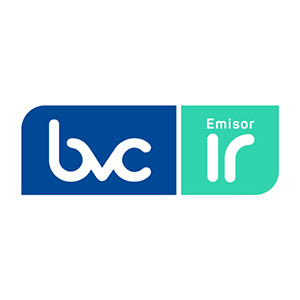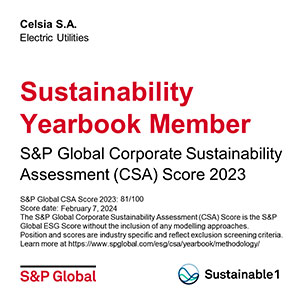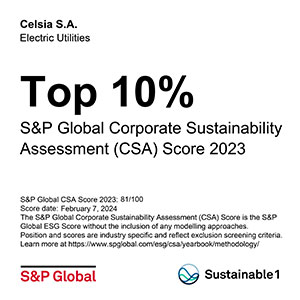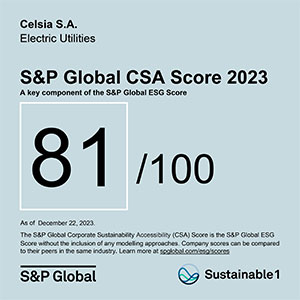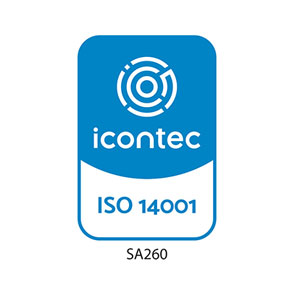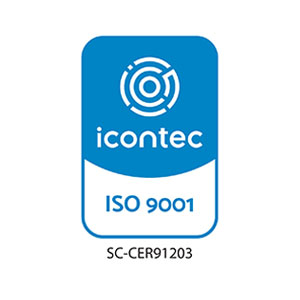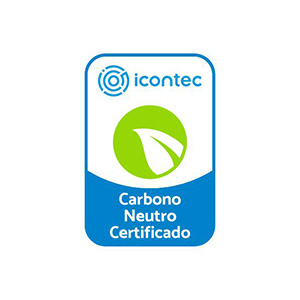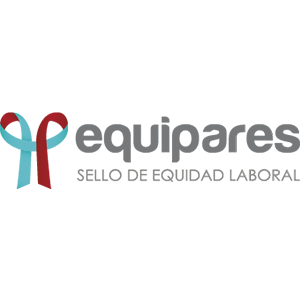We promote ethical decision-making and promote openness and honesty as values that characterize our internal and external actions, strengthen trust, and contribute to the sustainable development and long-term success of the company.
GRI (3-3) In the midst of a changing environment, our commitment to integrity is permanent. This principle is defined in our Code of Conduct as the fundamental and guiding element of our personal and business life.
At Celsia, ethics and transparency are part of our culture; they are the DNA that differentiates our engagement with every stakeholder and corporate governance, which are essential for generating value in business.
Our Management
GRI (3-3) (2-23) (2-24) We know that a culture based on strengthened ethical and transparent behaviors is ready to face any challenge. For this reason, we actively work on implementing a coordinated, dynamic ethics program adjusted to the business environment and socioeconomic realities. Our guidelines with respect to corporate governance, ethics, transparency, competition, and anti-corruption are mainly found in the Bylaws, codes of good governance and business conduct, Fraud, bribery and corruption risk management policy, and Competition Policy.
Code of Conduct
GRI (3-3) (2-23) (2-24) This behavioral guide complements our criteria and common sense to adopt behaviors that are favorable for maintaining Celsia’s positive image and generating responsible value. It contains mechanisms to confidentially report irregularities and appropriate environmental, health and safety practices. Compliance with this code helps us prevent:
- Corruption and bribery.
- Discrimination.
- Anti-competitive practices.
- The improper use of privileged information.
The topics our Code of Conduct covers are:
- Reporting irregularities.
- Environment, health, and safety.
- Money laundering and/or the use of privileged information.
- Antitrust/anticompetitive practices.
- Conflicts of interest.
- The confidentiality of information.
- Discrimination.
- Corruption and bribery.
To ensure its implementation, we have procedures, such as:
- Defining responsibilities, accountability and reporting lines throughout the organization.
- Integrating compliance into the performance evaluation systems of our employees and their remuneration.
Our Code of Conduct covers 100% of our employees, contractors, and suppliers, who accept its content in writing and receive training in it. The code also covers Celsia subsidiaries and Joint Ventures.
GRI (205-2) In the last 4 years, 100% of our suppliers and Joint Ventures were trained and informed on our Code of Conduct
GRI (2-26) (205-3)During our reporting period, no violations of our codes of conduct and ethics occurred.
Anti-Corruption Policy
At Celsia, we have a policy for managing the risk of fraud, bribery and corruption that provides clear guidelines to prevent and punish bribes of any type, such as those for contract payments (including bribes and soft dollar policies.)
Significant Risks Related to Anti-corruption
GRI (205-2) All of our processes have been evaluated against possibilities of corruption, as part of reviewing compliance risks, carried out across the organization. The most relevant processes, which are subject to strict controls, have to do with the improper use of confidential or privileged information, relationships with counterparties with business conduct challenges, interactions with public officials, and undisclosed or unmanaged conflicts of interest, among others.
GRI (205-3)At Celsia, no cases of corruption and bribery occurred or were confirmed in the last 4 years. Neither have we had any ongoing investigations in this matter involving the company.
GRI (206-1) In the last 4 years, the organization has not been involved in investigations related to anti-competitive practices, nor has it received fines or established agreements in this regard.
Anti-corruption Training
(GRI 205-2) All members of the Board of Directors were trained in the fourth season of the course The Power of your Decision, for employees In addition, a report on the Compliance Program was presented to the Audit, Finance and Risk Committee, which included corruption risk prevention and detection management.
Communication Mechanisms
(GRI: 2-26) We have different mechanisms through which our employees can request advice or express their concerns on conduct issues:
Business Conduct Committee
This is the highest authority for managing the Code of Business Conduct. It is made up of two company directors and the Internal Auditing Director. We have an email for communicating with committee members, and each one of them has a corporate telephone number, which facilitates immediate contact in case of any related queries.
Business Conduct Officers
This is a role that is part of the governance structure in matters of conduct and has attending to queries related to applying the Code of Business Conduct among its functions. They have a corporate e-mail address and phone number for communicating with them. The officers’ contact information is permanently published in internal media.
Transparency Hotline
Through this channel, people can personally or anonymously report improper actions or violations of the policies established in the Code of Business Conduct. This hotline is managed by an independent third party and provides adequate discretion.
The organization has Transparency Hotlines in each country where it operates:
Colombia
(57) 01 8000 123 420
Panamá
(507) 00 800 226 2591
(507) 832 7907
Honduras
(507) 800 2791 9131
The e-mail
Celsia@lineatransparencia.com
is the same for all countries
Main Results
GRI (3-3)
We continued the Ethics Program, which includes a communications campaign through the cultural channels, training for key teams (including contractors), and the Conduct Course whose main objectives are to strengthen the bases of ethics, transparency and respect, invite employees to reflect before making a decision through business cases, and encourage them to always do the right thing.
The employees and directors completed the Annual declaration of potential sources of conflicts of interest and the Declaration of assets and income. The latter is aimed at senior management and roles with some type of special attribution.
We implement ethics programs and the Comprehensive Risk Management and Self-Control System for Money Laundering and Terrorist Financing (SAGRILAFT, for the Spanish original) in the companies supervised by the Superintendence of Corporations in which Celsia has a relevant interest. Some of the actions carried out were:
- The Business Conduct Committee monitored the compliance program three times a year.
- The Business Conduct Committee presented a report to the Board of Directors on the year’s main activities.
- Complaints received on the transparency hotline were managed and its statistics were presented to the Business Conduct Committee and Board of Directors.
- Conflicts of interest disclosed by employees were managed, as defined in the conflict management protocol.
We participated in the collective action on ethics in the electricity sector, of which we have been members for over 8 years. In this event, we share best practices in business conduct and are committed to continuing to optimize our compliance programs.
We measured Celsia’s ethical climate according to employees, obtaining positive results. We highlight a rating of 9.37 out of 10 in the perception of transparency in the company’s award processes.

Topic / Indicator | Own indicators | CSA S&P Indicator | SASB indicator | GRI indicator | TCFD | External assurance |
|---|---|---|---|---|---|---|
Joint Ventures and Suppliers informed and trained in the Code of Conduct | – | – | – | 205-2 | – | |
Systems and procedures on the code of conduct | OWN C-CDC1 | 1.5.4 | – | – | – | |
Violations of our codes of conduct and ethics. | – | – | – | 2-26, 205-3 | – | |
Corruption and bribery cases | – | – | – | 205-3 | – | |
Investigations related to anti-competitive practices | – | – | – | 206-1 | – |
Bylaws: These are the internal regulations that govern the company’s operation and governance, approved by the General Shareholders’ Meeting.
Fraud, bribery, and corruption risk management policy: The parameters in developing the Code of Business Conduct to implement a risk management system, in order to establish control measures aimed at preventing their occurrence.
SAGRILAFT: A comprehensive risk management and self-control system for money laundering and terrorist financing.
